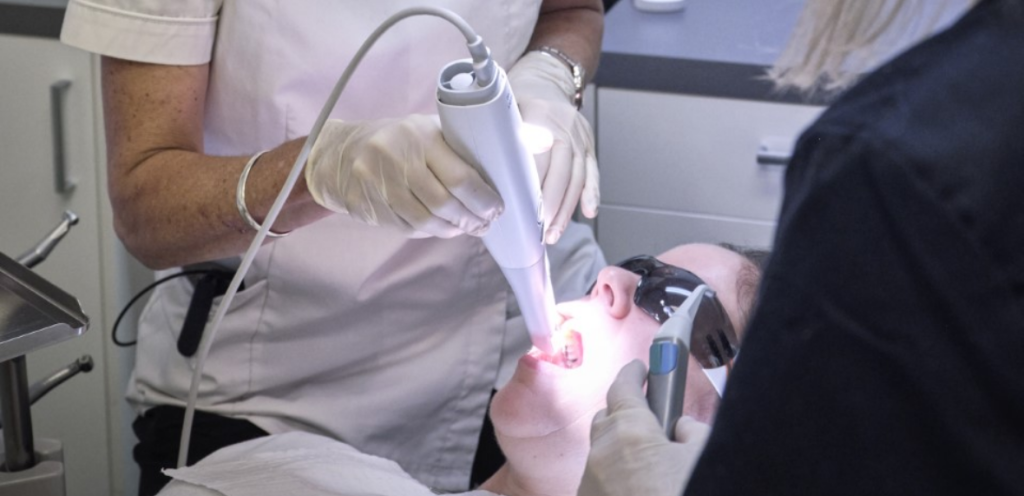Restorative Dentistry
and
Dental Fillings
Restorative dentistry encompasses a large range of services including dental fillings. It is basically defined as that branch of dentistry that deals with the restoration of diseased, injured, traumatised, or abnormal teeth back to normal function and aesthetics.
Dental fillings are the most common type of restorative treatment
Dental fillings replace the part of the tooth that may have been lost due to decay or because the tooth may have broken. The best way to fix this is to place a white (or composite) filling in to the tooth.
Dental fillings must be practical and aesthetically pleasing as most patients will not accept the old amalgam or silver fillings.
Composite or white fillings are bonded directly to the tooth, and in the majority of cases done under complete isolation known more commonly as a rubber or dental dam. This helps maintain a dry sterile field, also protecting the patient from the mild bonding agents used on the teeth.
White Bonded fillings can also be used to fill gaps in between teeth, change the shape of teeth and replacing chipped or broken teeth.
In some cases, especially large fillings in the back teeth, a composite resin filling may not be strong enough. In this case an inlay/onlay or crown may be advised.

Do I need dental fillings?
You may not know if you need fillings in your teeth. Many small to medium holes in teeth are asymptomatic, giving no pain. In fact, decay can sometimes eat out two-thirds of the tooth from the inside and you would have no idea it is happening.
Dental radiographs (X-rays), which are taken on a regular basis as part of your check-up, may show early decay that has not yet given any symptoms. You may be able to see a change in the colour on some of your teeth which may indicate early decay.
If your teeth are sensitive to hot, cold, or sweet food and drink, you may need fillings. At Stradbroke Dental we will investigate any sensitive teeth and toothache that you may have so make sure to let us know at your next appointment.
Teeth that cause severe pain may require fillings, or in some cases will require more extensive treatment such as root canal treatment.
The dentist will explain all options to you with the risks and benefits for each restorative choice.
